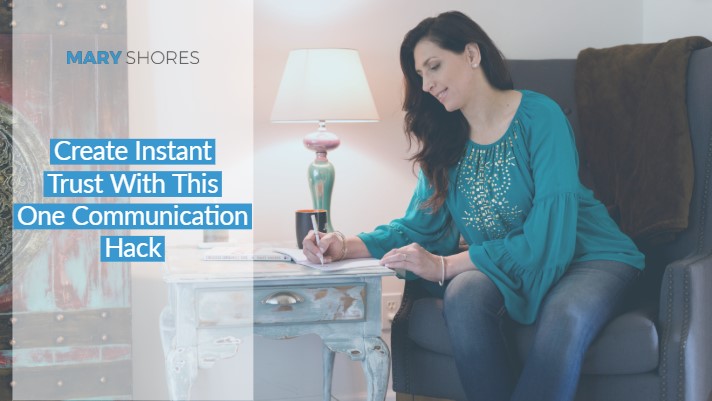Blog
Create Instant Trust with This One Communication Hack

We’ve seen time and time again how customer trust can make or break a business.
Since communication is at the center of everything we do in business, it’s critical we consider whether the words we speak are building trust or eroding it.
Validation – making people feel heard – is one way to create instant trust with your customers, clients, or even your co-workers.
As humans, we have a need to feel heard. When we find someone who connects with our struggle (or triumph), we feel cared for and supported. A level of trust forms. On the flip side, when we don't feel heard, we have a hard time moving on in a conversation or being emotionally receptive to a solution.
When I was writing my book, Conscious Communications, I had a situation with my editorial company. They had fired my editor, and I was freaking out. I was on a deadline, and I was afraid this was going to jeopardize my book deal. Talk about entering fight-or-flight mode, right?
But this is what happened.
The owner of the company got on the phone with me, and she said, “Listen Mary, this is what happened.” And she said, “This is what I'm going to do in order to fix it.” She spoke with such confidence. She didn’t deny the problem. Instead, she validated my concerns, like, “I know this sucks, and this is what we're going to do to get through it.”
“I know this sucks.” Those four words tell someone you understand what he or she is feeling. By validating my concerns, the owner of the editorial company showed me that she had put herself in my shoes, and I began to trust her because of it.
What’s more, her validation slowed me down and allowed me to be present for her solution.
Slipups are going to happen. We’re only human. Even in the times you do mess up, there are opportunities to win that person’s trust. How you handle pitfalls often says more about you as a person (or company) than when things are going right.
Some other things to keep in mind:
Validating isn't about apologizing or necessarily agreeing with someone. It's about letting that person know he or she has been heard, whether or not you can relate.
Don't interrupt someone to validate him or her. Give that person a chance to be heard. If you interrupt, your sentiments are going to come across as insincere.
Try it! The next time a customer, client, or co-worker brings you a concern or complaint, validate him or her and tell me what difference you see.
Some examples of validating phrases are:
I can appreciate what you're going through.
I can see why you're concerned.
I see this is troubling for you.
Don’t forget to validate good news from customers too. It's one way to build rapport.
For instance, you can say:
That's great! I'm so glad you told me that.
That's so exciting! I'm happy for you!
Does your company have its own validating phrases? What are they? I’d love to hear from you!
To read this article as originally written, visit MaryShores.com